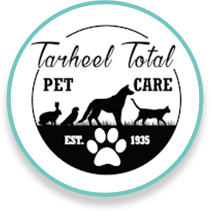As a pet owner, you may find yourself in a situation where you need to board your furry friend. You want to ensure that your pet is receiving the same level of care and attention they would receive at home, especially when it comes to their feeding and medication needs. Fortunately, pet boarding facilities have protocols in place to manage these needs effectively.
Pet boarding facilities have trained staff who ensure pets receive necessary food and medication needs as well as dietary needs. They ask for special requirements and schedules. They provide food, and medication and follow dietary instructions.
Staff Training and Protocols
Proper feeding and medication need management are critical aspects of pet care, and it’s essential that pet boarding facilities have trained staff members who can provide these services. These facilities have a responsibility to ensure that each pet under their care is receiving the appropriate food, medication, and dietary needs.
Before accepting a pet, the facility staff will typically ask about any special requirements or dietary restrictions. This is to ensure that they can provide the appropriate food and medication for each pet and to prevent any potential health issues or complications. The staff may also ask for a detailed feeding and medication schedule to ensure consistency with the pet’s routine.
Once a pet is accepted, the staff will provide the food, administer medication, and follow any dietary instructions provided by the pet owner. This can include providing special diets for pets with food allergies or sensitivities, administering the medication on a strict schedule, and ensuring that each pet is receiving the appropriate amount of food and water each day.
Pet Owner Communication
Clear communication between pet owners and boarding facility staff is critical in managing a pet’s feeding and medication needs. Pet owners should inform the facility of any dietary restrictions or medication needs, including dosage and timing. It’s also essential to provide detailed feeding and medication schedules to the facility staff to ensure consistency with the pet’s routine.
Clear communication between pet owners and boarding facility staff is crucial to ensure that each pet receives the appropriate feeding and medication needs. Pet owners should provide the facility staff with any relevant information about their pet’s feeding and medication requirements, including any dietary restrictions and medication needs, as well as dosage and timing.
It’s also essential to provide detailed feeding and medication schedules to the facility staff to ensure consistency with the pet’s routine. This helps to prevent any potential health issues or complications that can arise from inconsistent feeding or medication schedules. Furthermore, pet owners should also inform the facility staff of any changes in their pet’s health or medication needs, as this information can help the staff provide better care for the pet.
Protocols for Managing Pet Feeding Needs in Boarding Facilities
Pet boarding facilities typically have a standard feeding schedule for pets that ensures they receive their required amount of food and water each day. However, they can also accommodate specific dietary requirements if informed in advance.
Some pets may require a special diet due to health conditions, allergies, or other issues. For example, some pets may need a low-fat diet to manage weight or digestive problems, while others may require a grain-free diet due to allergies or sensitivities. The facility staff can provide these meals as needed, ensuring that each pet’s dietary needs are met during their stay.
Protocols for Managing Pet Medication Needs in Boarding Facilities
Medication management is a critical aspect of pet care, especially for pets with medical conditions or unique needs. In some cases, the facility may require written instructions from a veterinarian, including dosage and timing, to ensure that the medication is administered correctly. This can be particularly important for pets with complex medication regimens or those with chronic health conditions.
Special attention is also given to pets with unique needs, such as seniors who may require more frequent feeding or medication. In these cases, the facility staff will work closely with the pet owner to ensure that the pet’s needs are being met and that they are receiving the appropriate care and attention.
Veterinarian Support in Pet Feeding and Medication Needs in Boarding Facilities
When choosing a pet boarding facility, it’s crucial to ensure that they take your pet’s feeding and medication needs seriously. The facility should follow the veterinarian’s recommendations for your pet’s diet and feeding schedule, administer medication correctly, and store it appropriately. In case of an emergency, the facility should have a plan in place, including contact information for your pet’s veterinarian and an emergency veterinary clinic, and basic first aid knowledge to stabilize your pet before transporting them to the clinic.
Most pet boarding facilities have an on-call veterinarian available in case of emergencies or medical issues. If your pet has a pre-existing medical condition, it’s essential to inform the facility staff, including any required medications or special care instructions. Some facilities may also offer additional services, such as special diets, feeding schedules, or medication administration, for an additional fee.
Tips for Pet Owners
Preparing for boarding is critical to ensure that your pet’s stay is as comfortable and stress-free as possible. Pet owners should provide detailed information about their pets, including dietary requirements, medication needs, and any special care instructions. Bringing familiar items from home, such as a favorite blanket or toy, can help ease anxiety for some pets. It’s also essential to make the transition as smooth as possible for your pet, including providing comfort and reassurance during drop-off.
How can I ensure that my pet’s feeding and medication needs are being met while in a boarding facility?
Clear communication between pet owners and boarding facility staff is critical in managing a pet’s feeding and medication needs. Pet owners should provide detailed information about their pet’s dietary requirements, medication needs, and any special care instructions. It’s also important to provide a detailed feeding and medication schedule to the facility staff.
Pet boarding facilities like Tarheel Total Pet Care have protocols in place to manage pets’ feeding and medication needs effectively. Call on us and we’ll take care of your fur baby.



